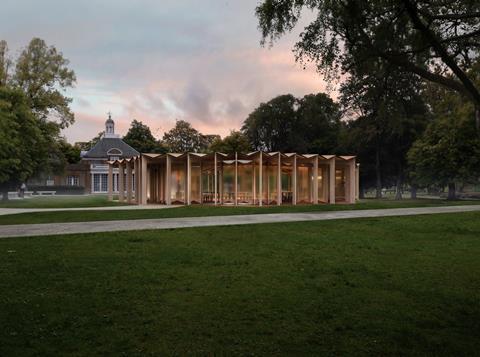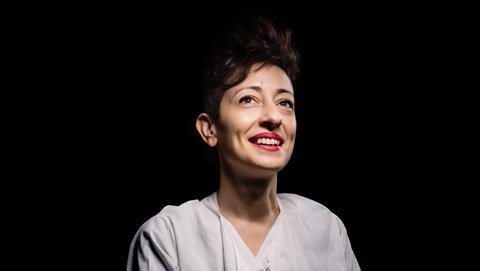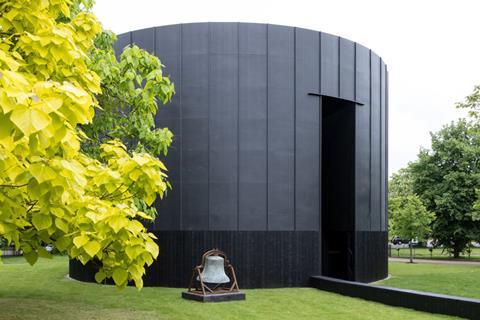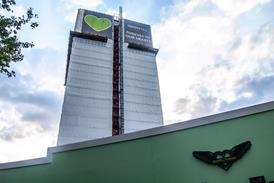Paris-based architect was nominated for a Mies Van Der Rohe award in 2017

Paris-based architect Lina Ghotmeh has been named as the designer of next year’s Serpentine Pavilion.
Lebanese-born Ghotmeh leads her own eponymous practice in the French capital where she develops projects with a focus on local history, social conditions and materials.
Her projects include the Estonian National Museum, which was nominated for the Mies Van Der Rohe award in 2017, and Stone Garden, a tower and gallery space in Beirut, Lebanon.
Her pavilion, the 22nd of the annual Kensington Gardens event and Ghotmeh’s first structure in the UK, will explore notions of memory, space and landscape through her own methodology.
Titled À table, it will be themed around the French call to sit down together at a table and will allude to a sense of unity, community and togetherness.

Ghotmeh said the structure will be “an invitation to dwell together, in the same space and around the same table. It is an encouragement to enter into a dialogue, to convene and to think about how we could reinstate and reestablish our relationship to nature and the Earth.”
She added that the “modest, low” structure will be reminiscent of the toguna huts of the Dogon people in Mali, West Africa, which are designed to bring all members of a community together in discussion.
“Here we can eat, work, play, meet, talk, rethink, and decide”, she said.
Serpentine Galleries chief executive Bettina Korek and artistic director Hans Ulrich Obrist said the pavilion will expand on the gallery’s mission of “creating connections between architecture and society by prompting unity and togetherness in its form and function”.
The predominantly timber structure is designed to minimise its carbon footprint and will be light-weight and fully demountable, with a focus on reusability.
It will be unveiled on 23 June 2023 at the Serpentine South in London’s Kensington Gardens, and will become a platform for the gallery’s summer programme which will feature live poetry, music and dance.
Ghotmeh was chosen by a panel consisting of Korek, Obrist, construction and special projects director Julie Burnell, curatorial affairs and public practice director Yesomi Umolu and curator at large Natalia Grabowska.
The panel was also advised by Adjaye Associates founder David Adjaye and structural engineer David Glover.
This year’s pavilion was designed by American artist and activist Theaster Gates, who worked with Adjaye Associates on the project.
The 11m-tall cylindrical structure, called Black Chapel, was inspired by the pottery kilns of Stoke-on-Trent.

















No comments yet